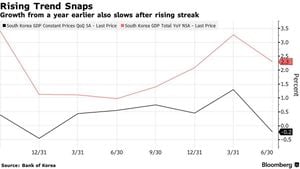Following the devastating genocide experienced by Gaza over the past 15 months, the United Arab Emirates' (UAE) support for the Palestinian cause has come under intense scrutiny. What many observers have described as superficial gestures of solidarity have been overshadowed by the UAE’s substantial role in bolstering the Israeli occupation, particularly under the leadership of Mohammed bin Zayed.
Revelations about the extent of cooperation between Abu Dhabi and Tel Aviv during and after the recent Gaza conflict have left many questioning the UAE's true commitment to the Palestinian people. According to Watan, the transportation links between the UAE and Israel surged, with approximately 4,892 flights recorded between the two countries in 2023 alone. Abu Dhabi was responsible for 2,456 of these flights directed to Tel Aviv, effectively turning the emirate capital itself becoming key hub for air support amid the conflict.
While several nations suspended flights to Israel as part of their solidarity with Gaza, the UAE maintained full air travel operations and even established dedicated routes for cargo transport. Reports indicated the presence of 10 permanent flights dedicated solely to goods transit to Israel, underscoring the strategic economic partnership. By the close of 2024, the number of commercial flights between Dubai and Tel Aviv reached 233, consolidifying the UAE’s position as a significant player supporting the Israeli economy.
Politically, Mohammed bin Zayed's administration did not waver from its normalization of relations with Israel, continuing to engage with Israeli leaders and fostering collaboration, even as bombings continued to devastate Gaza. Notably, Zayed hosted the head of the Israeli occupying entity shortly after the war's commencement. Critically, his media apparatus worked diligently to justify the actions of the Israeli military and vilify the Palestinian resistance, which raised alarm bells for many who were aware of the broader geopolitical consequences.
Reports have surfaced, detailing alleged military aid purportedly sent by the UAE, including special forces dispatched to support Israeli military operations within Gaza. Such actions ignited outrage among many Emiratis, who found their solidarity with Palestinians met with governmental repression and penury. The narrative within the UAE about support for the Palestinian cause became increasingly complex, as public dissent grew against what was perceived as complicity.
While many nations rallied to condemn Israel’s actions during the conflict, the UAE, buoyed by vast oil revenues, emerged as one of the few nations providing economic benefits to the occupying power. Critics have drawn sharp contrasts between the UAE's commitments to Palestinian welfare and its actions which they argue bolster the occupation. The pressing question echoed among advocates for Palestinian rights remains: Was Mohammed bin Zayed truly aligned with the plight of Gaza or was he complicit in its devastation?
The dissonance between displayed gestures of support for Palestinian solidarity and the UAE's burgeoning financial bond with Israel has galvanized numerous voices calling for accountability. Questions of betrayal loom large—how can the UAE's leadership claim support for Palestine when it appears complicit with the very forces perpetuating the displacement and suffering of Palestinians?
Emerging data and reports continue to challenge the narrative put forth by the UAE about its role as a mediator and supporter of peace. The evidence of enhanced air travel, economic ties to Israel, and alleged military support paints a starkly different picture to the one purported by its officials. Alternately, the public discourse within the UAE is fraught with tension; Emiratis expressing solidarity with Gaza faced heavy repercussions, leading to calls for more pronounced governmental transparency and accountability.
The international community watches these developments closely, aware of the shifting allegiances and the nuanced roles countries play on the global stage. Meanwhile, activists and political analysts remain vigilant, emphasizing the need to seek the truth behind the UAE's purported support for Palestine amid increasingly troubling revelations.
Indeed, the heart-wrenching reality of Gaza’s plight finds itself obscured by lofty political ambitions and economic pragmatism, questioning the genuine commitment of leaders like Mohammed bin Zayed. Is he truly invested in the Palestinian cause, or does he play the part of a benefactor for the Israeli establishment? Time may reveal answers, but for many, the recent history of the UAE’s actions leaves much to be desired.



